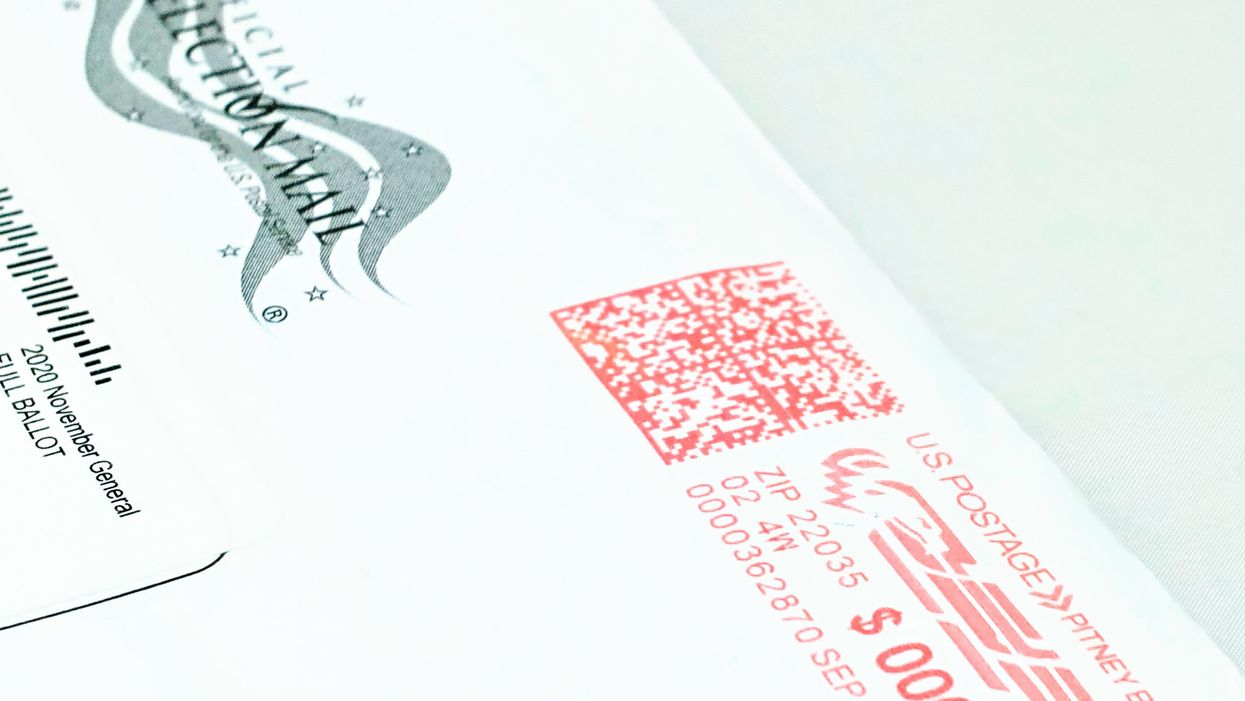Trump’s Amateur Sleuths Poised To Decry Another 'Stolen Election'
As Republican candidates, parties and groups are poised to legally challenge election results where they have lost or lag behind in the preliminary results, a parallel effort is underway in pro-Trump circles that likely will fabricate propaganda about illegitimate elections.
Candidates have long been able to challenge voters and ballots after Election Day during the vote count reconciliation process – called the canvass – which is before results are certified and recounts occur. But the efforts in Trump circles stand apart from these legal processes.
Trump Republicans and their allies are poised to gather “evidence” that frequently is not legally admissible in determining election outcomes, but can be exploited by propagandists to create distrust about voting, election officials, and the accuracy of voting systems.
“In some states, election deniers motivated by false claims of widespread fraud in the 2020 election are engaging in their own deeply flawed investigations to substantiate myths of widespread voter fraud,” reported the Brennan Center for Justice at New York University Law School in a research paper released on Friday. “They have organized to engage in practices like amateur data matching with voter rolls, door-to-door canvassing to compare residents’ statements with voter records, and surveillance of mail ballot drop boxes. These error-ridden practices can disenfranchise eligible voters and strain election official resources.”
Among the most high-profile recent efforts has been surveillance of drop boxes in Arizona, a state where 80 percent or more of the voters cast mailed-out ballots. This effort includes taking photos and videos of individuals dropping off ballots and their car’s license plates. That tactic is among several to make the claim that legions of unregistered voters are casting ballots.
This tactic, apart from possibly intimidating voters, is an example of what the Brennan Center called an “error-ridden” practice. The address tied to a license plate may not be the same as a voter’s most recent registration information, especially if that voter recently moved.
Nonetheless, since the 2020 election, ex-Trump campaign workers and self-appointed data analysts have parsed voter rolls in swing counties in swing states to falsely claim that the rolls were rife with inaccuracies that could be exploited by Democrats to fabricate votes.
Initially, Trump activists started knocking on doors to verify if a voter’s address on their registration record was accurate, to ask if they voted in 2020 and gather personal information. That activity lead to accusations of voter intimidation by civil rights groups. Earlier this year, the focus shifted to filing mass challenges of voters’ credentials, such as in metro Atlanta in Georgia, where more than 60,000 challenges were almost entirely rejected by county election officials this past summer, who, nonetheless, had spent months investigating the complaints.
“Activists are being encouraged by those who claim the 2020 election was ‘stolen’ to perform their own amateur data matching. They are using National Change of Address lists, tax assessor data, a portal operated by government contractor Schneider Geospatial, public map services, and public voter data from multiple states to make inferences about current voter eligibility and past election legitimacy,” the Brennan Center report said. “In doing so, they are cobbling together incomplete datasets that can later become ‘evidence’ for candidates to baselessly challenge the legitimacy of the election if they lose.”
Those behind these efforts have waged recruitment drives to gather evidence for post-Election Day challenges or to generate fodder that almost certainly will be used for propaganda – filling media channels as some battleground states take more time to count their votes than others. (Pennsylvania and Wisconsin, for example, cannot start counting absentee ballots until Election Day. Florida, Arizona, and Nevada can start several weeks before.)
Whether led by ex-Trump White House officials or campaign lawyers based at Conservative Partnership Institute in Washington, or a looser collective of election deniers and self-appointed experts convened and funded by MyPillow CEO Mike Lindell, the ringleaders have instructed activists to use apps like Basecamp to coordinate their activities, and apps like VotifyNow to report incidents that they deem suspicious.
“In the upper left-hand corner is the menu tab that will bring up your voter integrity tools,” a VotifyNow tutorial said. “When you click on these buttons, such as mail-in ballot issues, you’ll see the app allows you to type in a brief description of any suspicious activity you notice, as well as upload a photo or video... That incident is then sent to our database to be analyzed and compared with other issues in your area.”
Needless to say, just because a citizen observer thinks that they are seeing something wrong does not mean that factually is the case, said Tammy Patrick, a senior advisor at the Democracy Fund, at a November 2 press briefing where threats to election officials were discussed.
“I’ve had some election officials tell me that these observers act like they’re going to find the body; that they are coming onto a criminal site or crime scene,” she said. “When you approach the information that way, when you don’t know what you are looking at, you’re going to find what [conspiratorial evidence] you are looking for.”
Nor are specious observations likely to be accepted as evidence in any post-Election Day administrative review or legal process. But what fails to meet a legal standard of evidence can succeed as disinformation.
“It is important to remember that all reliable evidence shows that our elections — including the 2020 election — are safe, secure, accurate, fair, and free of widespread voter fraud,” the Brennan Center said. “We cannot let these dangerous and defective schemes compromise our democracy.”
Steven Rosenfeld is the editor and chief correspondent of Voting Booth, a project of the Independent Media Institute. He has reported for National Public Radio, Marketplace, and Christian Science Monitor Radio, as well as a wide range of progressive publications including Salon, AlterNet, The American Prospect, and many others.
This article was produced by Voting Booth, a project of the Independent Media Institute.












